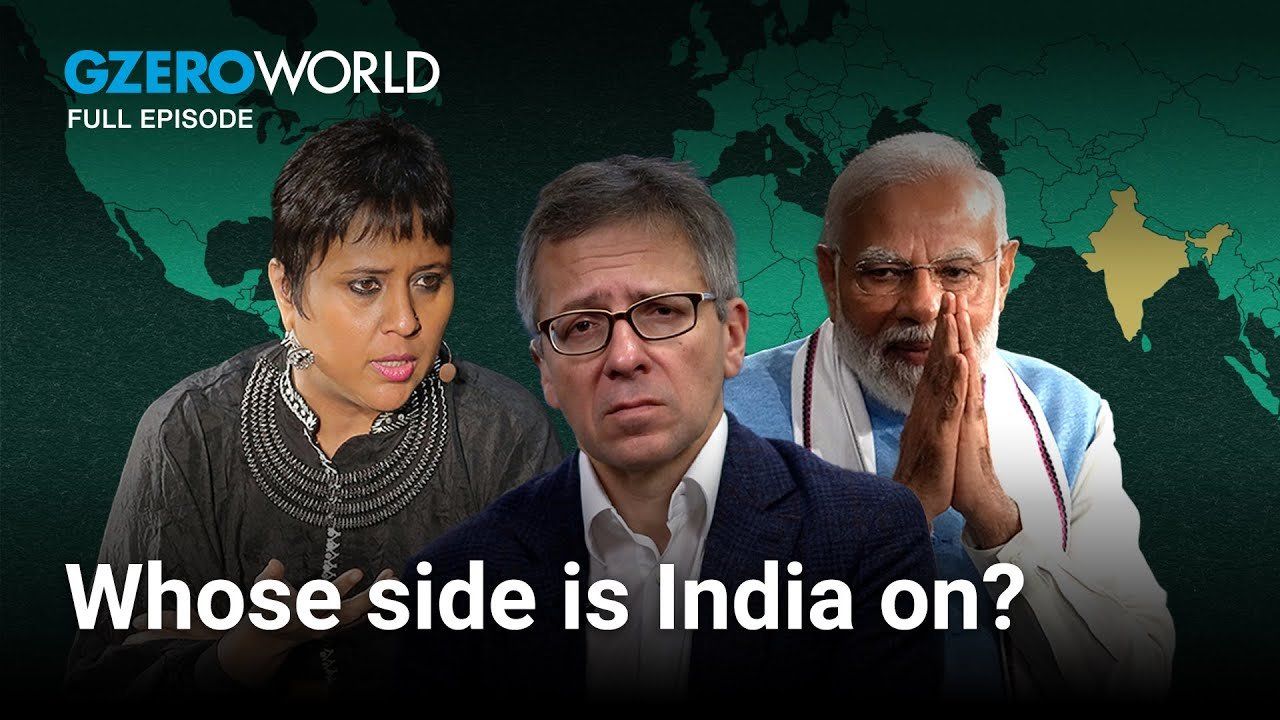GZERO World with Ian Bremmer
India is not a US ally ... or is it?

India is not a US ally ... or is it? | GZERO World

If the United States and India were ever to make it Facebook official, their status would be: "It's Complicated." These two global behemoths may seem like close allies, especially judging by the warm welcome President Biden gave Prime Minister Modi during his White House visit in June, but in reality, they are anything but best friends.
During the Cold War era, India maintained a "strategically non-aligned" global status and it has tried to stay on the geopolitical fence since fall of the Soviet Union. But when Russia invaded Ukraine and Delhi refused to explicitly condemn Moscow, India's self-proclaimed "multilateral" approach was severely tested.
On the show this week, a deep dive into the nation that recently surpassed China to become the most populous country on earth. Ian is joined by award-winning broadcast journalist and Washington Post contributor Barkha Dutt to talk US-India relations, the state of democracy within India, and how the trauma of COVID has reshaped the country.
Tune in to “GZERO World with Ian Bremmer” on US public television starting this Friday, July 7, to watch the full interview. Check local listings.
At the 2026 World Economic Forum in Davos, GZERO’s Tony Maciulis spoke with Ariel Ekblaw, Founder of the Aurelia Institute, about how scaling up infrastructure in space could unlock transformative breakthroughs on Earth.
On Friday, US officials warned the transitional council in charge of Haiti not to remove interim Prime Minister Alix Didier Fils-Aimé, ahead of a deadline for the council to step down on Feb. 7.
The president of the tiny eastern European country has suggested possibly merging with a neighbor.
$25 billion: The minimum amount of investment required to fulfil Jared Kushner’s ambitious property plan for Gaza.